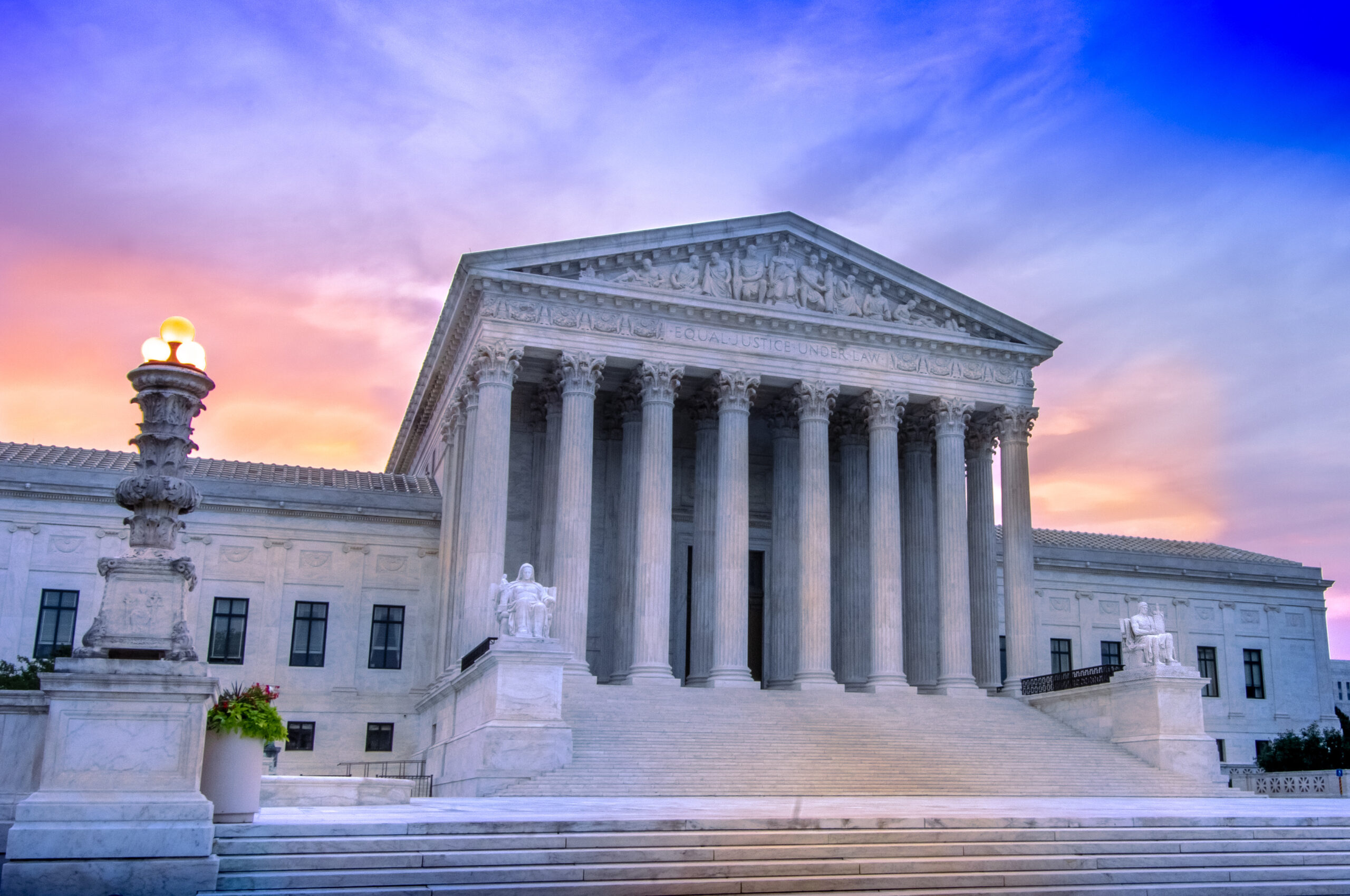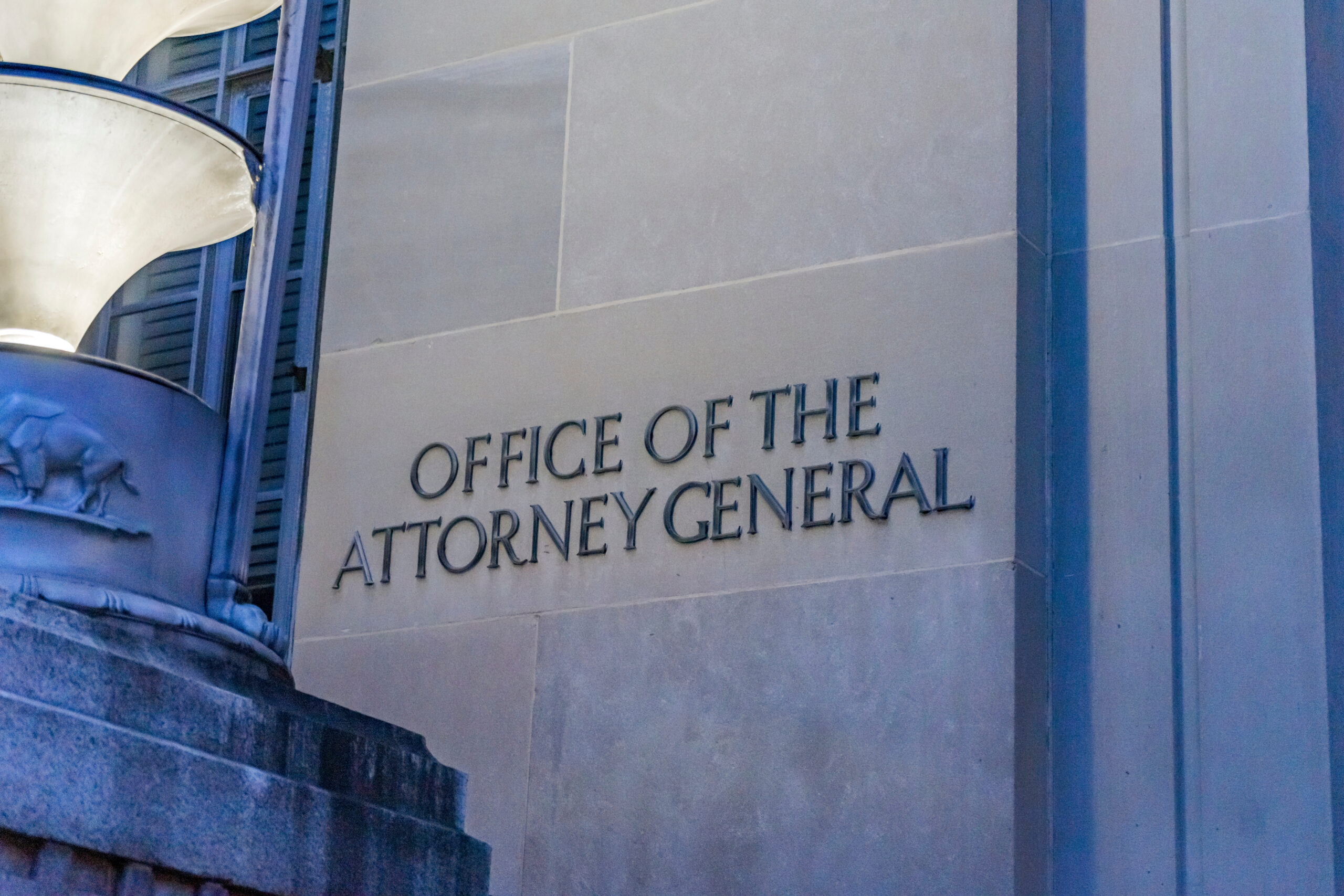On June 30, the U.S. Supreme Court refused the California Trucking Association’s (CTA) appeal to maintain an injunction prohibiting enforcement of California’s AB 5.
10 W. Market St, Ste. 1400
Indianapolis, IN 46204
Scopelitis’ Transportation Brief® is intended as a report to our clients and friends on developments affecting the transportation industry. The published material does not constitute an exhaustive legal study and should not be regarded or relied upon as individual legal advice or opinion.
We are pleased to announce that Martin O’Connor has joined the Firm’s Chicago office and Adam Steel, Robert Rowlett, and Brigitte Collier have joined the Firm’s Indianapolis office.
Mr. O’Connor’s practice is primarily devoted to Commercial Litigation. Mr. Steel and Mr. Rowlett will focus on matters related to Class Action Defense and Complex Litigation while Ms. Collier will concentrate on Regulatory, DOT, and Hazardous Materials Compliance.
Scopelitis attorneys on the latest transportation industry news and trends.
Scopelitis attorneys are often invited to participate in meetings with transportation industry leaders. Learn more about their trips this quarter.
10 W. Market St, Ste. 1400
Indianapolis, IN 46204
Scopelitis’ Transportation Brief® is intended as a report to our clients and friends on developments affecting the transportation industry. The published material does not constitute an exhaustive legal study and should not be regarded or relied upon as individual legal advice or opinion.
10 W. Market St, Ste. 1400
Indianapolis, IN 46204
AB 5 Petition Denied by U.S. Supreme Court
On June 30, the U.S. Supreme Court refused the California Trucking Association’s (CTA) appeal to maintain an injunction prohibiting enforcement of California’s AB 5 (the strict ABC worker status test used in California). On August 29, the injunction was lifted. AB 5 can now be enforced by state officials against the trucking industry.
CTA announced that it will pursue a new injunction, arguing that federal law preempts the stricter standard required by the Ninth Circuit or that AB 5 creates an unconstitutional burden under the dormant commerce clause. Regardless of the legal arguments, the CTA has signaled that it will continue pursuing (perhaps uphill) efforts for legislative relief. Independent trucker protests disrupting traffic at California’s ports and AB 5 pressure on an already stressed supply chain will keep the issue in the public eye.
Although AB 5’s ABC test may prove difficult for the traditional owner-operator relationship, the U.S. Solicitor General and at least one state appellate court (in a case involving Cal Cartage) have suggested the business-to-business (B2B) exemption could be satisfied (resulting in application of the longstanding Borello test).
The exemption requires a contractor to act as a business entity and to meet the elements in Cal. Labor Code § 2776(a), including one that requires a business license and another requiring a distinction between customers served by the contractor and those of the alleged employer. Although only of persuasive value, the Cal Cartage court indicated the business license requirement refers to local business licenses and not to motor carrier authority. The court also indicated an owner-operator could be viewed as providing services directly to the motor carrier and not to the carrier’s customers, satisfying the “customer” element. The case law may develop unevenly with respect to these and other required elements.
Transportation businesses may use various strategies in an effort to comply with AB 5, but a clear solution remains unknown. Such strategies may range from relying on a broker-carrier model where owner-operators obtain motor carrier authority, to dispatch management, to converting to an employee model (assuming owner-operators are willing to abandon their businesses), or even shuttering California operations. Thoughtful and informed implementation is just as important to a defensible model as selecting the best options. The legal developments to come will require thoughtful reactions.
Spotlight on The Firm’s Air and Ocean Practice
Freight forwarders that handle air and ocean cargo face a daunting set of legal hurdles at every turn. The Scopelitis Air and Ocean Practice helps clients navigate this often-uncertain legal environment by charting a course to success that aligns with the unique objectives of each business.
With respect to air cargo, our attorneys help businesses with:
- Start-up and licensing, including with TSA as an Indirect Air Carrier, CNS as an Agent, and DOT as a Foreign Air Freight Forwarder
- Legal compliance
- Commercial issues
- Disputes with counterparties, including shippers, airlines, and ground-handling agents
We have extensive experience with inspections and enforcement actions brought by TSA, the FAA, and other federal and state agencies concerning air transportation of hazardous materials. Our attorneys have defended over 75 TSA enforcement cases involving air-cargo violations, including cargo-screening violations with potential civil penalties totaling nine figures. We pursue a collaborative approach with the companies’ compliance team, working to identify the alleged violation’s root cause and implementing corrective actions that will win the support of the regulators.
As for ocean cargo, the Firm regularly counsels on the convoluted and sometimes archaic rules of the Federal Maritime Commission (FMC) that limit the ability of a party to arrange ocean transportation to or from the United States without a license or registration. These rules often go so far as to impact how rates and contract terms can be negotiated. It is an antiquated legal regime that requires published tariffs and limits freedom of contract. We are here to help make sense of these rules and to assist in drafting subsequent terms and conditions of service.
Companies may also face commercial disputes concerning ocean transportation, including disputes between sellers and buyers wherein the forwarder is “stuck in the middle” due to a stoppage in transit order. In addition, given the historic levels of port disruption, forwarders can find themselves in the middle of detention and demurrage disputes that may involve hundreds of thousands of dollars. We help companies proactively curtail risk and quickly resolve disputes to minimize business disruptions.
Scopelitis attorneys are involved in the unique challenges of the air and ocean forwarding industry regularly.
Contact Braden Core or Nathaniel Saylor to see how Scopelitis can help your business navigate this complex legal environment.
Supreme Court Addresses “Transportation Worker” Exemption from the FAA
In a unanimous opinion, the U.S. Supreme Court clarified who qualifies as a “transportation worker” for purposes of the exemption from the Federal Arbitration Act (FAA). In Southwest Airlines v. Saxon, the Court held that an airline’s ramp supervisor, who regularly performed loading and unloading of luggage, mail, and cargo, was exempt from the FAA. While the Court’s holding was limited to those who “load and unload cargo on and off airplanes that travel in interstate commerce,” the Court’s reasoning would seem to apply more broadly to workers performing similar services in other modes of transportation. We are closely watching how lower courts apply Saxon to warehousing and trucking providers.
Individual PAGA Claims Can be Arbitrated, But Only Where the FAA Applies
In a closely-watched case decided this term, the U.S. Supreme Court held that California’s long-standing rule prohibiting parties from agreeing to arbitrate Private Attorneys General Act (PAGA) claims is preempted by the Federal Arbitration Act (FAA). However, there are limits to the holding. First, parties can agree that individual PAGA claims must be resolved by arbitration, but they cannot require representative PAGA claims to be arbitrated. Instead, the representative PAGA claim must be heard in a separate court action. Thus, the U.S. Supreme Court held that the representative claims should be dismissed for lack of standing, but California courts may hold that dismissal is not required, or the Legislature may amend PAGA to the same effect. Second, the Court’s holding only applies where the FAA applies. Generally, interstate “transportation workers,” including truck drivers, are exempt from the FAA, so they will continue to be subject to the California rule prohibiting agreements to arbitrate even individual PAGA claims.
Illinois Supreme Court Poised to Issue Key Biometric Privacy Law Rulings
Illinois’ Biometric Information Privacy Act (BIPA) is one of the nation’s toughest laws regulating the collection, storage, and use of biometric identifiers. The Illinois Supreme Court is considering two cases that may have significant ramifications for companies that have potential exposure under the law. In Cothron v. White Castle System, Inc., the Illinois Supreme Court will determine whether claims alleging BIPA violations accrue each time a company scans a person’s biometric identifier, or only upon the first scan. A per-scan theory of claim accrual could lead to significantly greater damages for companies doing business in Illinois, despite a courts’ power under the statute to exercise discretion in awarding statutory damages. In a second case, the Court will determine the applicable statute of limitations period for BIPA claims. The Illinois Appellate Court previously held a 1-year limitations period applies to BIPA claims involving allegations of data publication, while Illinois’ 5-year catch-all limitations period applies to other claims.
Consumer Protection Class Actions: A New Favorite for IC Drivers
Recently, independent contractor drivers in Iowa, Oklahoma, Tennessee, and Utah have obtained class certification of claims alleging deceptive practices by a motor carrier under state consumer protection statutes. Contractors argue that motor carriers deceive drivers by promising monthly miles or revenue in the recruiting process that fails to materialize.
Given the statutes’ broad remedial purpose to guard against deceptive practices, when contractors present evidence they were exposed to the same promise, courts have allowed “an inference of reliance” to replace the need for traditional proof that the promise caused each contractor to sign their contract. Although this inference is subject to legal challenge, it may provide an easier path to certification and leverage to class counsel to demand a multi-million-dollar settlement. Motor carriers should carefully examine recruiting and onboarding practices and address any representations that could be interpreted as a promise of a contractor’s future income.
We are pleased to announce that Martin O’Connor has joined the Firm’s Chicago office and Adam Steel, Robert Rowlett, and Brigitte Collier have joined the Firm’s Indianapolis office.
Mr. O’Connor’s practice is primarily devoted to Commercial Litigation. Mr. Steel and Mr. Rowlett will focus on matters related to Class Action Defense and Complex Litigation while Ms. Collier will concentrate on Regulatory, DOT, and Hazardous Materials Compliance.
Jim Golden will be speaking in negotiation course classes at Harvard Business School on October 25 – 26.
IC Policy Committee Meeting
Attendees: Gregory M. Feary,
Greg Feary will Participate in the IC Policy Committee Meeting.
Don Vogel and Fritz Damm will attend the Canadian Transport Lawyers Association’s Annual General Meeting and Educational Conference, October 13 – 15
Michael Roberts and Michael McFarlane will attend the Trucking Industry Defense Association’s 30th Annual Seminar, October 12 – 14
Jeff Toole will present “Transportation Legal Risks, Highlights and Issues in 2022” at the Motor Carrier Insurance Education Foundation’s Annual Conference, October 6 – 7.
Todd Metzger and Ron Morelock will attend the Indiana Motor Truck Association’s Annual Convention, September 29 – October 2, in Marco Island, Florida.
Jay Starrett, Steve Stanaszak, and Mary Beth Hughes spoke at The Machinery Haulers Association, Inc.’s Fall Conference.
Braden Core presented “Offering and Transporting Air Cargo: Domestic and International Considerations” at the Transportation Lawyers Association’s Motor Carrier Committee Meeting.
Indiana Motor Trucking Association Member Webinar
Shannon Cohen reports the Eleventh Circuit recently affirmed the lower court’s injunction preventing the enforcement of the vaccine mandate applicable to government contractors. However, it reduced the scope of the previously nationwide injunction so that it applies only to contractors in AL, GA, ID, KS, SC, UT, WV, and to members of the Associated Builders and Contractors. It remains to be seen whether the Biden administration will move to enforce the mandate and require vaccination for government contractors outside of the states listed above.








